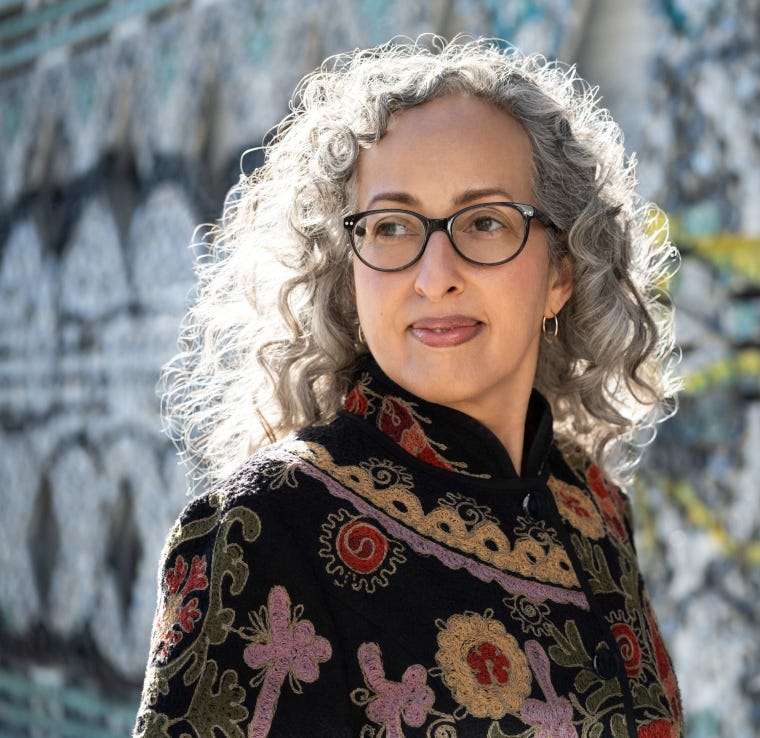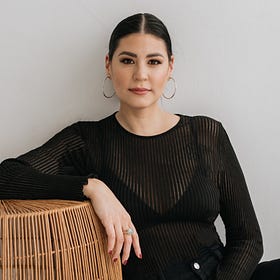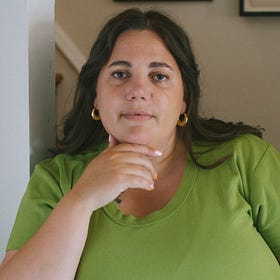Hello friends!
It’s strangely chilly in New York this week. Right when we were all expecting the late-August battering ram of uninterrupted sun and scalding pavement and melting popsicles and going to the movies just to feel the air conditioning— chilly mornings! Breeze! Everyone is walking around in light sweaters looking unnerved and refreshed.
We had promised an interview with Sigrid Nunez for this week, and while that interview is wonderful and on its way, our partners for the ep have asked to run it in September for reasons having to do with their seasonal calendar. (They didn’t know that autumn was happening mid-August.) So, anticipate Sigrid for your back-to-school moodboard, right alongside the bouquet of newly-sharpened pencils.
Today, we’re running an interview with Sofia Samatar, a writer whose work fascinates me and whose commitment to an unbounded, multi-hyphenate intellectual/artistic identity I admire. Samatar is an academic who works on African and Arabic literatures, and she is a beloved and much-awarded writer of fantasy novels, including A Stranger in Olondria and The Winged Histories. She has also written a memoir, The White Mosque, about a trip to Uzbekistan to research a group of Mennonites who lived there in the 19th century — and her own Somali and Mennonite heritage. She enters sustained collaborations with other people, like her brother, with whom she made Monster Portraits, and with the writer and Thresholds alum Kate Zambreno, with whom she wrote Tone, a joint meditation on tone in writing.

I think this sounds heroically prolific and versatile. Samatar put it another way: “I find genre a problem.
In our conversation, Samatar describes the way she often tacks back and forth between genres in a way that feels like doubling her work: an idea has to become an academic journal article and then a novella as well.
“Genre is a problem for me because I am so in between these different genres and I’ve been working for years in both fiction and nonfiction at the same time. It’s a little bit bonkers in the sense that it raises the question: WHY? Why do you have to write the same thing twice? Why does every academic article also have to be a work of fiction, and vice versa?”
Right now, she says, she’s attempting something new: the full integration of all her writing selves, of all her genre inclinations. This necessitates an unprecedented formal creative act: she has to find, or make, a type of writing that can hold it all. What is it? She’s not sure yet.
I love talking to writers when they’re in this stage— confronting a problem that they know it’s time for them to solve, but unsure whether they’re capable of the solution. It’s an exciting and freaky time creatively, and Samatar is such a vibrant narrator of her own process. She’s also just a wonderful thinker about writing, which is on full display in her new book, Opacities: On Writing and the Writing Life. If you’re a writer, or interested in how writers think, I can’t recommend it enough.
Not mentioned in the ep, but a fun read: Sofia’s piece “Island Writing.”
A dream of writing: to have it all at once. To possess the whole story, feel it twinkling between your fingertips, gulp down the egg. She works on the novel every day. Each time she sits down to write, she reads the whole manuscript before beginning. In this way, she carries it in her mind, complete, as she advances.
That’s all for now! Next up we’ll have an interview with Maya Binyam, author of the novel Hangman and also of my favorite piece of writing about a white couch. In the meantime, if you like what we’re up to here, please share the newsletter and the podcast far and wide — it really does help.
Til soon,
Jordan
Amy Lin Looks Into the Silence
"I felt something slip away from me— disassemble. And it was that belief, that the dead can speak to us."
Emma Copley Eisenberg Jumps In
One day, when she was working on Housemates, she had something like a vision: she was standing on a cliff over the ocean, and her two main characters were bobbing in the water below, calling up to her that she had to jump in. She didn’t want to. They insisted.
Remix! Aimee Nezhukumatathil Names the World
This kind of over-the-fence neighbor gentleness isn’t something I’d yet run into in my years in New York. I saw the styrofoam cup and thought, Man, we have found ourselves in the right place. Let’s never leave. Now I’m a person who has feelings about blackberries.





